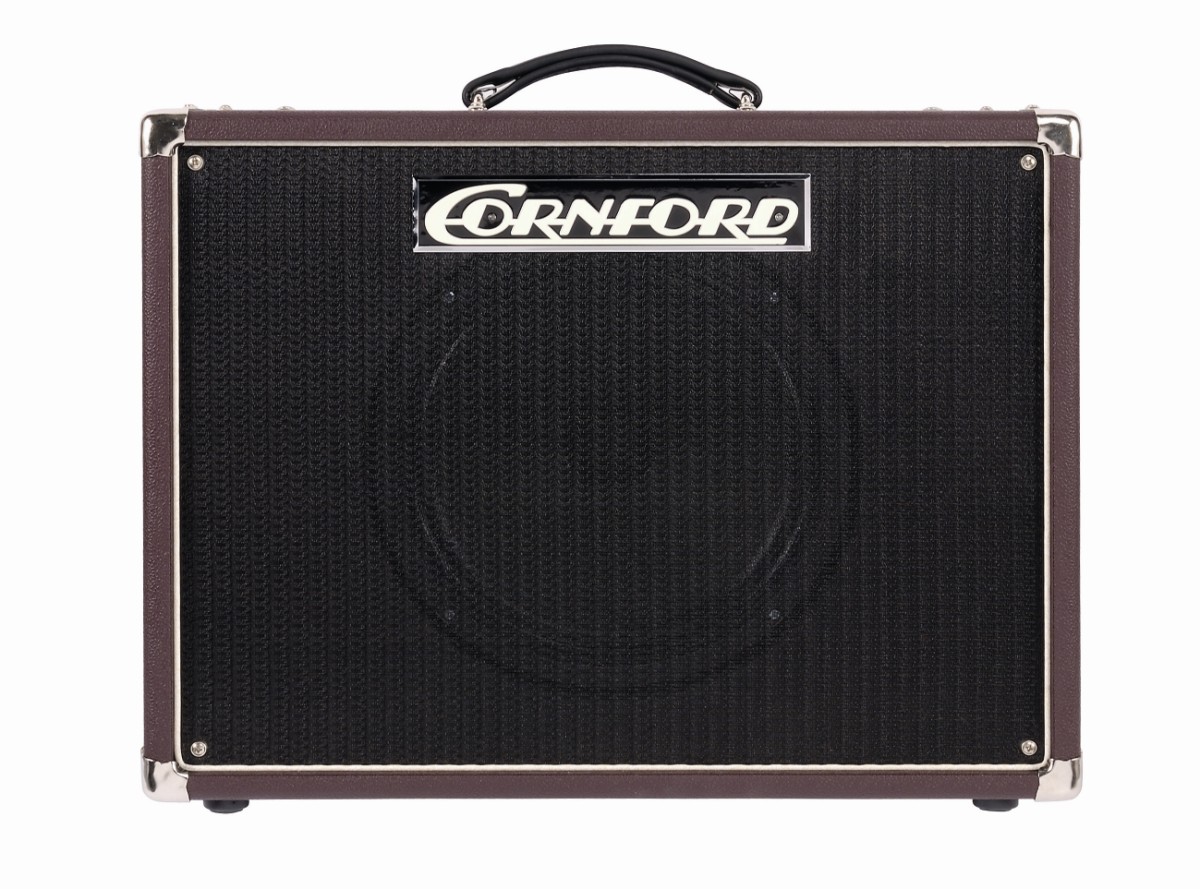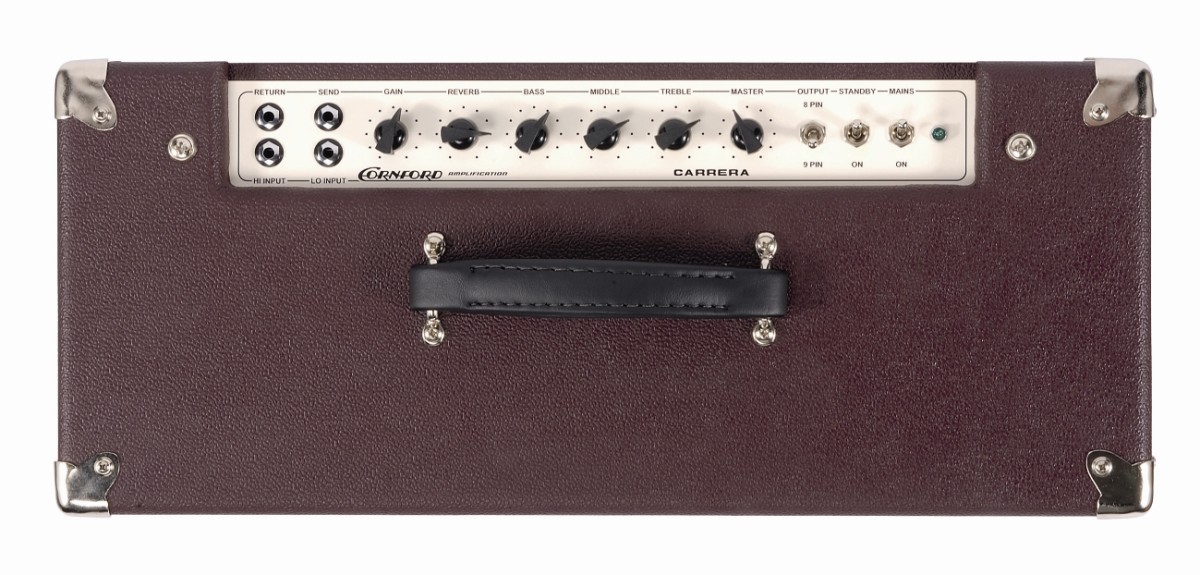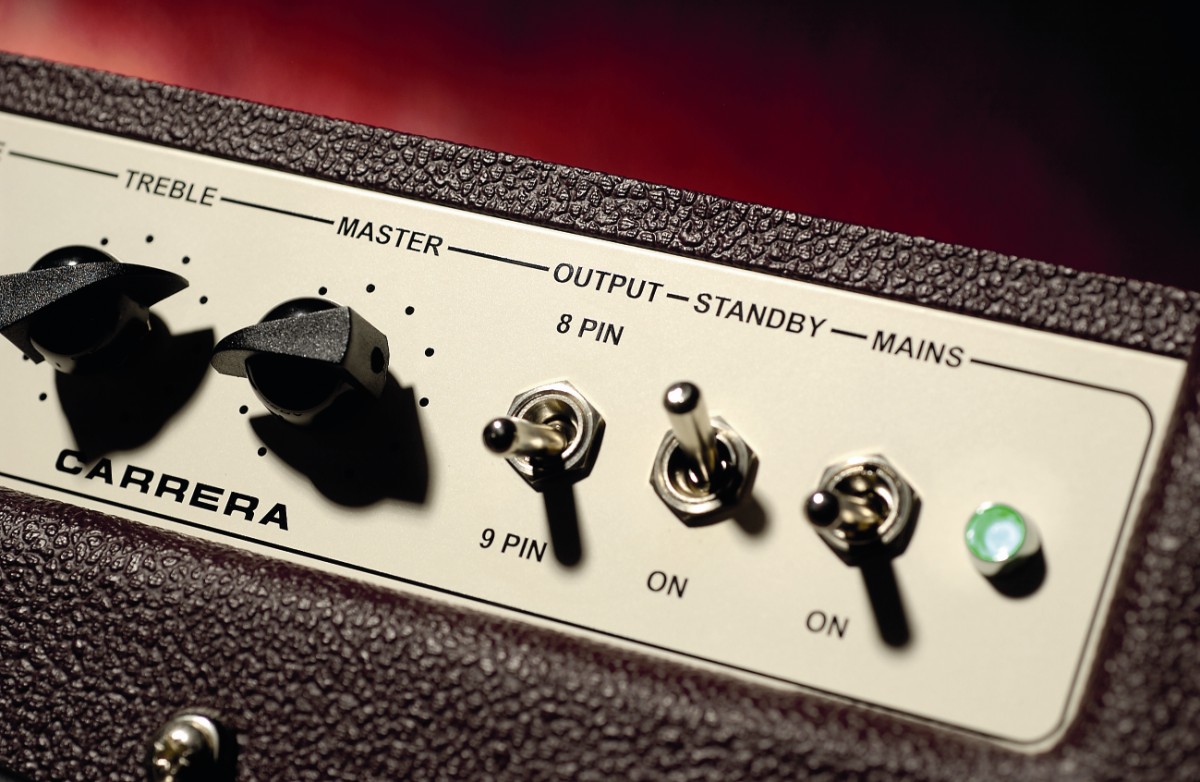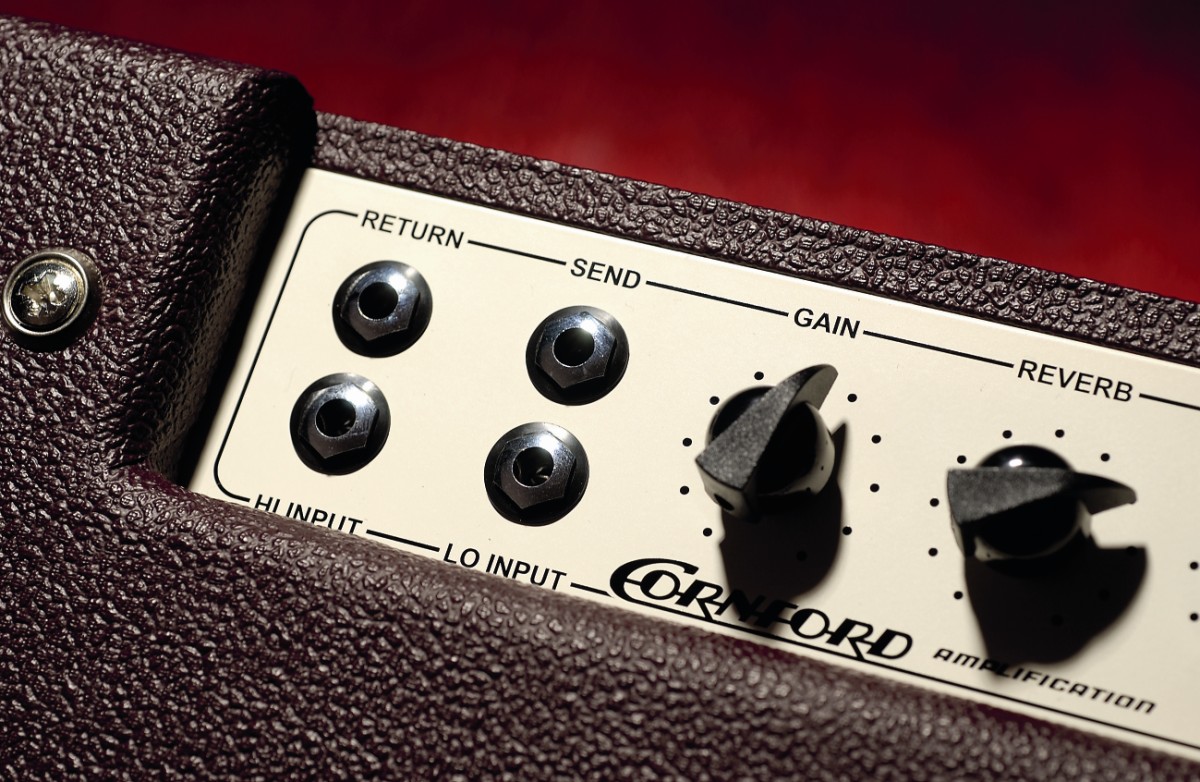MusicRadar Verdict
We can't fault the Carrera, even on price.
Pros
- +
Built like a tank. Superb tones. Switchable valve base. Luscious reverb.
Cons
- -
Nothing to dislike.
MusicRadar's got your back




It was back in 1999 that UK maker Cornford Amplification launched its first Harlequin model. It was a radical move: a full-sized 1 x 12 combo that kicked out just six watts.
Since then, many other manufacturers have cottoned on to the demand for a big tone from a low-output valve amplifier, and the market is now awash with single-ended heads and combos.
The Harlequin became an instant hit with studios, as well as with guitarists with home set-ups who were fed up with synthetic sounds and wanted real tone on their recordings.
These days, the Cornford range includes the powerful MK50, Ritchie Kotzen signature heads and cabs, the 35-watt Hellcat stack and combo, and the excellent 20-watt Hurricane.
So why have Paul Cornford and Martin Kidd, the founders of this now world-acclaimed amp range, come up with another low-watter, this Carrera?
"It was as a direct result of pressure from our players," says Paul Cornford. "They kept telling us they wanted a Harlequin, but with a few more features, like reverb and an effects loop. So we've bowed to their requests with the Carrera. But we added our own ideas to make it even more interesting."
Overview
Cornford has made its name on hand-built, point-to-point wired amps ("No PCBs of any sort," insists PC) and that's exactly how the Carrera is built at the company's home in Kent, England.
As well as the entirely valve-driven reverb and effects loops, Cornford has come up with a rather ingenious way of creating different power ratings and tones - but more on that later.
The Carrera is a simple but attractive amp. It comes in the company's trademark oxblood vinyl over a lock-jointed pine cabinet, with cream-painted control panel, chicken-head knobs and a sturdy leather handle.
The monster-sized Cornford logo splashed across most of the cream-piped black fret-cloth is new. We like this bold statement.
The control panel is a simple affair, offering low and high inputs, effects send and return, gain, reverb, bass, middle, treble and master volume controls.
There are on-off and standby switches, and another toggle that says '8 pin' one way and '9 pin' the other.
This is the Carrera's secret weapon and means you can use any output valve you like, from regular EL34s and 6L6s, right up to super-tubes like the venerable KT88.
This feature not only enables the user to choose the amp's overall tone colour, but it also provides different power outputs, from five watts (EL84) to a massive eight (KT88), and all points in between. Inside, the wiring is impeccably done.
Makers of hand-built valve amplifiers like to route and tie the cables as neatly as possible while ensuring minimum noise through interference.
They also love to lay the components out in the most visually pleasing way, as well as building in simplicity of design and therefore ease of maintenance.
Cornford and Kidd have turned these aims into an art form. This is a beautiful piece of work.
Sounds
The Carrera was tested using an early sixties Strat, a PRS McCarty, a custom-built 'chambered' Warmoth with Bare Knuckle pickups, and a variety of other instruments.
It quickly became apparent that this is an amp of real sonic beauty.
Equipped with a Fender-style 6L6, it produced an open, vocal set of tones that proved clear and bell-like at any level.
The old Strat was both incisive and fat, the PRS produced girthsome punch and the Bare Knuckled Warmoth gave out a barking torrent of brooding tone.
Reverb is so often a disappointing affair, even in expensive amplifiers, and you'll often go from nothing to everything between three and four on the control knob.
The Carrera's, on the other hand, couldn't be more perfectly tuned. Use a tiny hint to add ambience to your general tone, a bigger splash to help those driving rock licks to sustain, and a total wash for Peter Green-style weepy blues.
Cornford's valve circuit has made reverb a genuine addition to the Carrera's tonal palette. What this new Cornford is brilliant at is what we could term the 'Eddie Van Halen phenomenon'.
This is where you think a sound is distorted because it sings and sustains so well, but in reality it's a whole lot cleaner.
This is the Holy Grail of guitar tone, because so often we pile on the gain to try to make things happen, when in truth all that's needed is a decent sound in the first place.
The Carrera has it in spades. The amp comes with EL84 and 6L6 valves as standard, so you can opt for the Harlequin's typical 'mini AC-30' tone, with its inherent sweetness in the trebles and plummy warmth at the other end, or go for the altogether more 'open' tone (with a touch more output) of the 6L6. As it happened, we also had an EL34 to hand.
When this was fitted (simply by turning the amp to Standby), we were greeted with a squarer, harder-edged sound.
The obvious comparison is that of Marshall tonality compared to Vox - the emphasis switching to the mids for a more direct attack.
All that said, Cornford has brilliantly managed to create its own voice in the midst of all this comparison.
It's a uniquely British voice too, helped in no small way by the Celestion Vintage 30, and it's one that sits somewhere between Van Halen's 'brown' sound and Brian May's much sweeter one.
And it's not just dirty tones at which the Carrera excels: clean, it's as fruity as you like, especially with a dash of reverb.
If you sneak a chorus pedal into the equally musical send and return loop, the thing really springs into life.
There's bags of headroom on offer too, and for home playing, band practice and committing those superlative solos to hard disk, it really is the one to beat.
But wait - there's a speaker extension socket too, so you could hook a Carrera up to a 4 x 12 if you so desired, and even a slave output should you want to gang it up to your MK50 stack. Seems like Cornford has got it all covered!
“I feel like that song had everything we needed to come back with”: Bring Me The Horizon’s Lee Malia on Shadow Moses, its riff and the secrets behind its tone, and why it was the right anthem at the right time
“I said, ‘Are we sure we can write a song about death?’”: The story of Mike + The Mechanics' classic No.1 The Living Years
“Without investment in music education our talent pipeline is at risk of drying up along with the huge opportunities for economic growth it brings”: UK Music draws up five point plan to “turbocharge” music education









